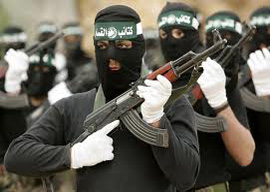
June 26, 2012

Neither Afghanistan nor Iraq can be regarded as a loyal ally or defender of U.S. interests. Pakistan, a country of 170 million with atomic weapons and an ally through 40 years of Cold War, has been converted into an embittered and even hostile nation.
The U.S.-NATO intervention in Libya brought about the dethroning and death of Gadhafi. It also resulted in the expulsion of Tuareg tribesmen who had served Gadhafi as mercenaries. Back in Mali, they have joined rebels to effect the secession of a slice of Mali the size of France, which is now becoming a haven for al-Qaida.
When one considers the investment America has made in the Middle East—the dead and wounded from our wars, the trillions lost in fighting and foreign aid, the endless time and attention of our leaders, scholars, journalists—what do we have to show for it?
From the Maghreb to the Middle East to Afghanistan, Christians are as isolated and imperiled as they have been in centuries.
The Israelis now have as neighbors: Hezbollah to the north, an embittered, segregated Palestinian population of 2 million to the east, Hamas to the south and to the west an Egypt of 80 million that has just passed into the custody of the Muslim Brotherhood.
And among those seeking to bring down Assad are not only Americans, Turks, Saudis and Qatari, but al-Qaida, the principal suspect in the terror bombings of Aleppo and Damascus, and the Muslim Brotherhood, which owes the Assad family a blood debt.
If Assad falls and Sunnis seize power and pursue their slogan—“Christians to Beirut and Alawites to the tomb”—a prediction: A return of the Golan Heights taken by Israel in the 1967 Six Day War will top the agenda of the new Damascus regime.
And now John McCain is calling for air strikes on Damascus and Bibi Netanyahu and his neocon allies have Tehran in their gun sights.
What exactly have we gained from 30 years of interventions in the Middle East—that China lost out on by staying out?